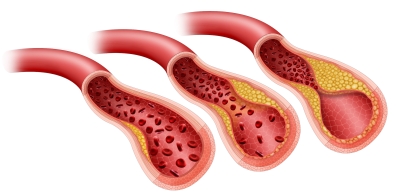Reducing the Risk of Amputation Due to PAD
From an interview with
Dr. Eva Rzucidlo, Vascular Surgeon
McLeod Vascular Associates Florence
Peripheral Arterial Disease (PAD) is a disease most people have never heard about, but it affects more than 20 million people, according to reports from the American Heart Association.
Peripheral Arterial Disease occurs when layers of fat build up on the inner linings of the blood vessels throughout the body and limits blood flow. It usually involves the arteries running to the legs and feet.
Peripheral Arterial Disease typically affects people over age 50, but the risk increases with smoking, diabetes, high blood pressure, high cholesterol, and a history of heart disease.
The symptoms of PAD include aches, numbness, and burning sensations in the legs and feet. Patients may have leg pain while walking and sores that will not heal. Amputation is a common treatment for the disease in its advanced stages.
Many patients with Peripheral Arterial Disease also have diabetes. Nerve loss associated with the disease can dull or eliminate the sensation in the feet, and with no pain, there may be no warning that wounds are not healing. With regular medical care, ulcers can heal, thereby reducing the rate of amputation.
The strongest risk factors for Peripheral Arterial Disease are diabetes and smoking. Other risk factors that increase a person’s chances of developing this condition include:
- Overweight/obesity
- Physical inactivity
- High blood pressure
- High LDL (bad) cholesterol
A family or previous history of cardiovascular disease or stroke also increases an individual’s risk of developing Peripheral Arterial Disease.
In many cases, Peripheral Arterial Disease can be controlled or prevented by lifestyle changes, such as exercising and dieting to lose weight and lower blood cholesterol. The single most important thing a person can do is to stop smoking.
Early detection of PAD is important. Some patients wait too long before seeing a physician about their foot wound. Whatever a patient’s medical history or prior treatment, high-risk patients in danger of losing a limb should be evaluated by a vascular surgeon.
Vascular surgeons evaluate the color, texture, temperature and nerve function of the patient’s toes and fingers. They also measure the blood pressure in each limb with a simple ankle-brachial index test, performed in the office, which compares the blood pressure in the patient’s arm to the blood pressure in the ankle. If the pressure in the ankle is lower than the pressure in the arm, the patient may have Peripheral Arterial Disease.
Managing Peripheral Arterial Disease so patients don’t get ulcers or severely restricted blood flow requires regular check-ups. Once a patient is diagnosed with Peripheral Arterial Disease, the goals for treatment include reducing symptoms, improving quality of life and mobility, and preventing a heart attack, stroke or amputation. At McLeod Vascular Associates, we work with patients diagnosed with Peripheral Arterial Disease to determine the best treatment options to help achieve these goals.
To learn more, speak with a vascular specialist near you.
-
McLEOD REGIONAL MEDICAL CENTER FLORENCE
843-777-2000 -
McLEOD DARLINGTON
843-777-1100 -
McLEOD DILLON
843-774-4111 -
McLEOD LORIS
843-716-7000 -
McLEOD SEACOAST
843-390-8100 -
McLEOD CHERAW
843-537-7881 -
McLEOD CLARENDON
803-433-3000



-
McLEOD REGIONAL MEDICAL CENTER FLORENCE
843-777-2000 -
McLEOD DARLINGTON
843-777-1100 -
McLEOD DILLON
843-774-4111 -
McLEOD LORIS
843-716-7000 -
McLEOD SEACOAST
843-390-8100 -
McLEOD CHERAW
843-537-7881 -
McLEOD CLARENDON
803-433-3000
 Find a Doctor
Find a Doctor  Locations
Locations  Services
Services 